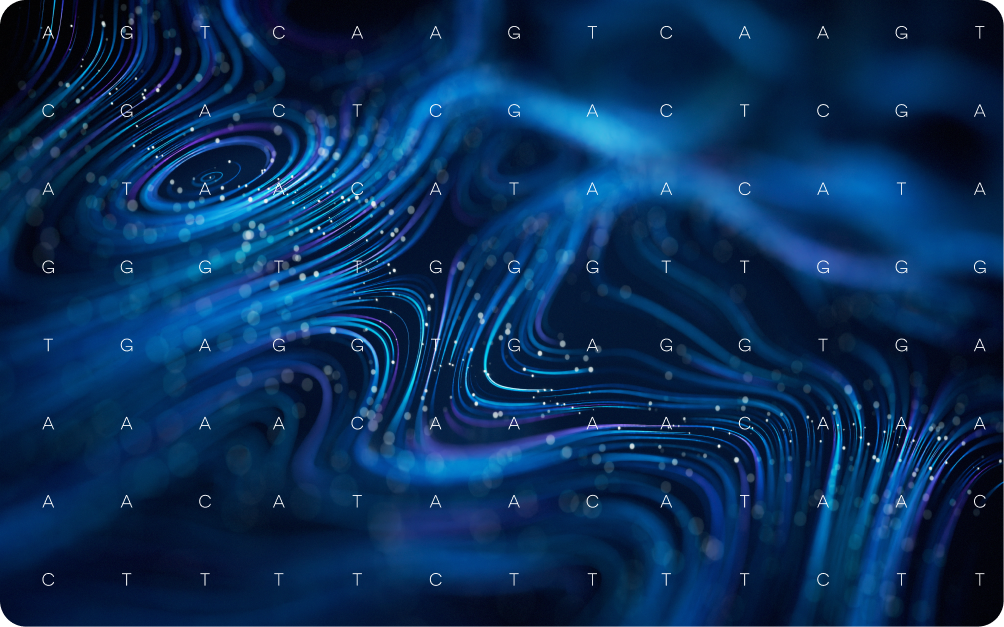AI's significance in genomics lies in its ability to uncover hidden patterns, provide diagnostic insights, and enhance our understanding of genetic information. The reason AI can be so helpful in genetics is that the complexity and sheer volume of genomic data poses significant challenges to traditional methods, which struggle to efficiently analyse and interpret this information. AI addresses this hurdle by offering computational tools capable of handling, extracting, and deciphering valuable insights from a huge amount of data.
AI can impact both research and clinical applications. AI assists scientists in genetic research by rapidly analysing vast genetic datasets, identifying patterns and mutations, and predicting their implications for health and disease, thereby accelerating breakthroughs in understanding and treatment. In clinical applications, AI can assist in diagnosing and treating diseases based on genetic profiles, opening avenues for precision medicine.
Despite being in the early stages, AI’s integration into genomics has already created a wave of change in various aspects of healthcare, including:
- Personalised genomic medicine: AI customises treatment plans based on an individual's genetic profile, improving outcomes in conditions like cancer, and is also being used to predict the progression of disease in patients, providing valuable insights for personalised treatment plans.
- Genetic disease identification: AI algorithms analyse genetic data to identify markers associated with diseases, enabling early detection and intervention for conditions like cystic fibrosis or Huntington's disease. This has also worked in imaging; AI programs have been trained to analyse facial features to accurately identify genetic disorders. A facial image analysis framework called DeepGestalt has already been shown to outperform clinicians in identifying syndromes. It’s even been demonstrated that ML techniques can identify the primary type of cancer from liquid biopsies, offering a non-invasive diagnostic option.
- Predictive genomics for disease risk assessment: AI models predict an individual's risk for developing certain genetic disorders, allowing for preemptive healthcare measures. For example, AI can predict the likelihood of developing hereditary breast or ovarian cancer based on BRCA gene mutations.
- Advanced gene therapy research: AI aids in designing and optimising gene therapy techniques, leading to more effective and safer treatments for genetic disorders. For example, deep learning algorithms improve the functionality of gene editing tools, such as CRISPR, by simulating the brain's neural interactions.
- Genome sequencing and analysis efficiency: AI significantly speeds up the genome sequencing process and analysis, making it more accessible and cost-effective, and allowing for broader application in personalised medicine.
- Drug discovery and development: In pharmacogenomics, AI identifies genetic markers that influence drug response, leading to the development of drugs that are more effective and have fewer side effects.
- Understanding genetic variations: AI helps in understanding the implications of genetic variations and their roles in diseases, contributing to more effective diagnostic tools and therapies. For example, a deep neural network has been trained to identify pathogenic mutations in rare disease patients with 88% accuracy. It has also enabled the discovery of 14 new candidate genes in intellectual disability at genome-wide significance.
- Neonatal and prenatal genetics: AI tools analyse genetic information from neonatal and prenatal screenings to detect congenital anomalies or inherited diseases, facilitating early intervention strategies.
- Epidemiological genetics: AI models track and analyse genetic patterns in populations, aiding in understanding the spread of genetic diseases and the impact of genetics on public health. For example, AI has been able to effectively predict future genomic variations in viruses such as influenza and COVID-19.
- Enhanced genetic counselling: AI supports genetic counsellors by providing detailed, data-driven insights into an individual’s genetic risks, improving the counselling process for patients considering genetic testing.
As AI continues to evolve and integrate with genomics, its potential to move us towards a future of personalised medicine and transform our understanding of genetic information is becoming more and more apparent.
To learn more, download our whitepaper, “Data-driven healthcare: How artificial intelligence and machine learning are transforming genomics.”

